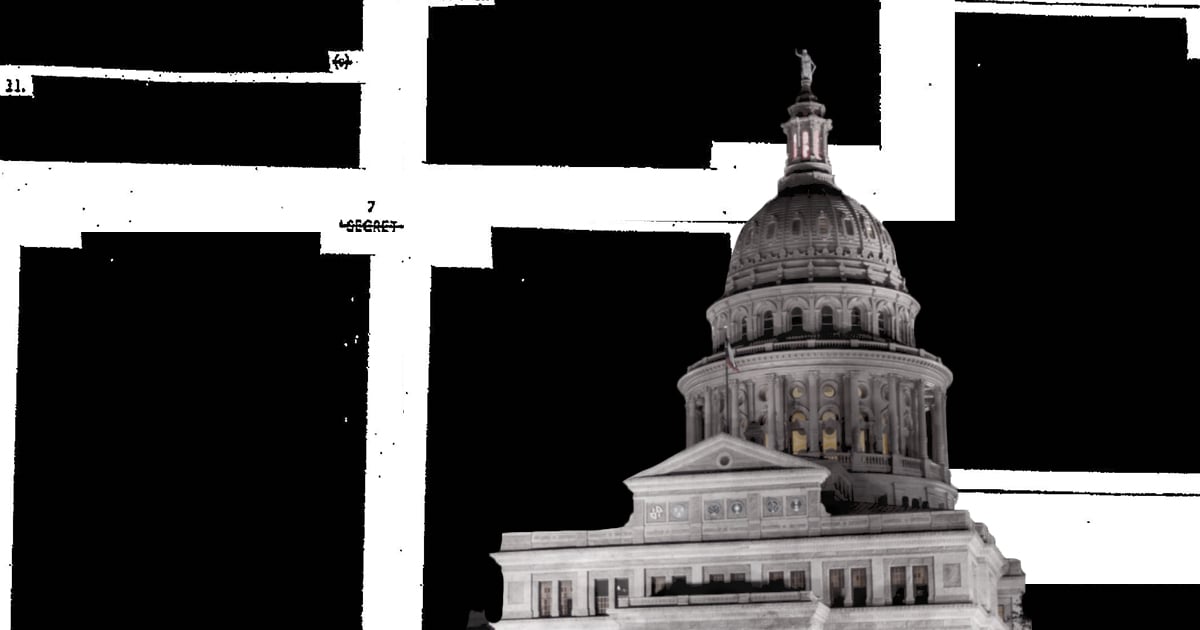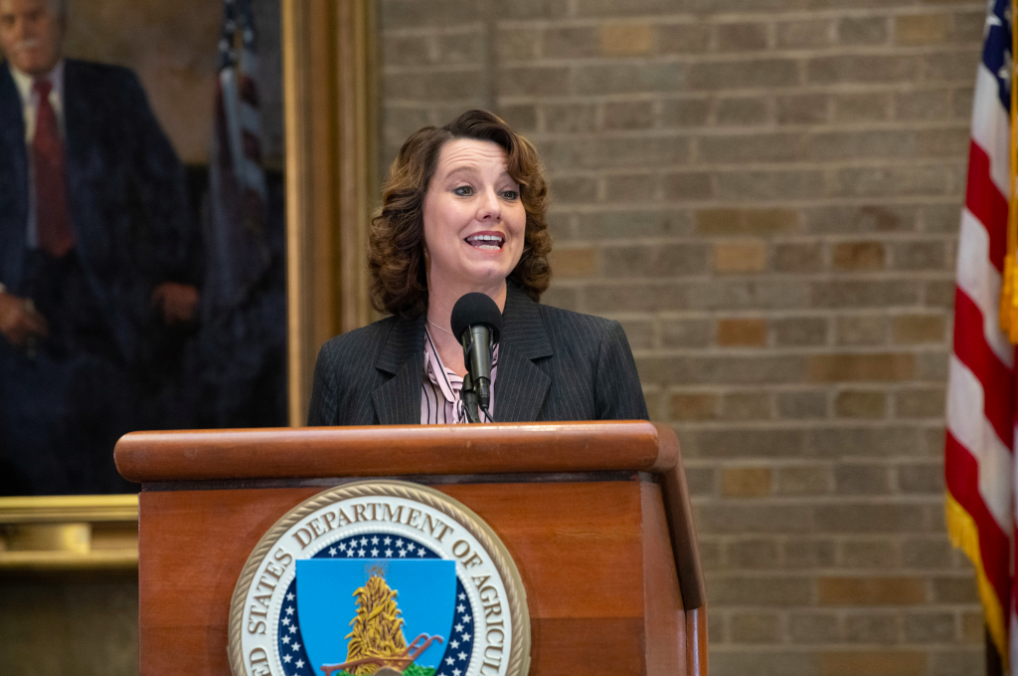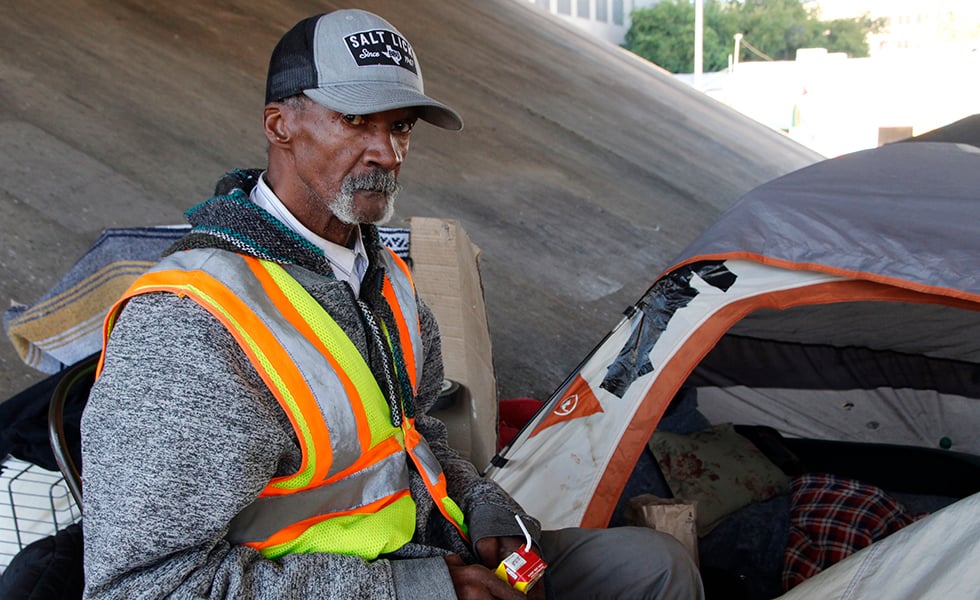
The COVID-19 Disaster Has Made a Mess of Texas’ Open Government Rules
Some government officials in Texas appear to be exploiting the pandemic as a way to hide public business from the public.

Thanks to the COVID-19 pandemic and opportunistic public servants, government agencies now have carte blanche to operate in secret for as long as this crisis persists—and perhaps even longer.
On March 13, Governor Greg Abbott declared a state of disaster, which—along with limiting visitations to nursing homes and urging Texans not to go to work if they are sick—lifted “any order or rule of a state agency that would in any way prevent, hinder, or delay necessary action in coping with this disaster.” Some of those waivers seemed sensible, such as a moratorium on fines for Texans who don’t register their vehicle on time, or a kibosh on standardized testing in public schools.
But among the temporarily lifted regulations were a handful regarding two cornerstone government transparency laws in Texas. One of them, the Public Information Act, gives citizens the right to obtain records held by the government in a (generally) timely fashion. The second, the Open Meetings Act, mandates that agencies give advance notice of meetings and allow for public attendance. The statutes are part of a suite of open government laws, including ethics and campaign finance rules, enacted by the Legislature in the early 1970s.
After Abbott’s announcement last month, indicted Attorney General Ken Paxton excused government agencies from some requirements related to open records and open meetings laws. When a person requests records held by a government agency, the agency typically has 10 business days to either agree to hand the records over or ask Paxton’s office for permission to withhold them. But Paxton told officials they won’t have to comply with the deadline if their offices aren’t open for business, even if the employees who would normally respond to requests are working from home.
As a result, roughly 80 cities, counties, school districts, and other governmental bodies have filed notices with the attorney general’s office stating they do not intend on fully complying with open records rules. The agencies that have filed “catastrophe notices,” as they’re called, include some that could hold crucial information about the unfolding public health crisis. For example, the Tarrant County Hospital District on April 6 sent notice that it would suspend its open records responses because employees “are either focused on dealing with the COVID-19/CORONAVIRUS pandemic or are understaffed due to concerns regarding virus transmission.” Tarrant County has reported 876 positive cases and 25 deaths as of Monday—the third most of any Texas county. The Williamson County and Cities Health District sent a similar notice on April 1; the county has reported 113 cases and four deaths.
The Texas Department of State Health Services and the Health and Human Services Commission, the agencies overseeing most of the state’s health care functions, have also filed catastrophe notices. At the same time, those agencies have been criticized for the paltry amount of public health data made they’ve made available. The agencies only released data on infections in nursing homes—a step many other states readily took—after the Texas Tribune reported on its failure to do so.
Catastrophe notices were created by the Texas Legislature in the session directly following Hurricane Harvey, which flooded some government offices and destroyed records. In the 2019 session, the bill was championed by Senator Joan Huffman, a Republican from Houston, who said in a committee hearing that complying with the act during a disaster would unduly burden government officials. (It’s worth noting that Huffman came under fire in 2018 when a Texas Alcoholic Beverage Commission employee accused the senator of wielding her influence to scuttle an investigation into a nightclub she and her husband had an ownership interest in; the employee said he was directed by the commission to delete records that would implicate Huffman.) Huffman’s bill was opposed by the Texas Press Association, the Texas Association of Broadcasters, and other open government advocates before being signed by the governor in June.
Despite the extra leniency, some government agencies now aren’t even bothering to file catastrophe notices before ignoring requests. For example, the Texas Public Utilities Commission has said that it will indefinitely delay its response to a request I sent in February because its offices are closed; the agency has otherwise filed no catastrophe notice with the AG’s office. Another request I sent to Lubbock County on March 23 has gone unanswered; the county also sent no notice.
A spokesperson for the AG’s office has not answered Observer questions regarding whether officials who are citing COVID-19 to slow-walk requests are required to file a notice. But the statute’s language appears to show that they would be in violation of state law: “A governmental body that elects to suspend the applicability of the requirements of this chapter to the governmental body must submit notice to the office of the attorney general that the governmental body is currently impacted by a catastrophe and has elected to suspend the applicability of those requirements…” Another problem—if agencies aren’t filing notices before withholding records, it becomes much more difficult to get a handle on how many of them are freezing requests. Just like the coronavirus itself, the problem could be much worse than available data indicates.
The attorney general’s office has mostly left intact the Open Meetings Act, which requires that agencies give 72 hours notice before meeting to discuss public business. Texas has lifted the requirement to provide a physical place for members of the public to watch the meeting, but agencies must still give the public the opportunity to participate in meetings either through the Internet or by telephone. Still, public meetings are being fumbled by some officials; in the East Texas town of Palestine, a reporter was barred from attending a city council meeting even though it would not have violated social distancing rules. The town also had not set up a toll-free number for the public to participate in the meeting.
On March 30 in Abilene, a specially called city council meeting to impose a shelter-in-place order—which the public and news media were not allowed to attend—was marred by technological difficulties. Officials couldn’t get the phone system to work, causing the meeting to start late. When they finally got the system working, there was no one in charge of screening call-in questions from the public and putting them through to council members one at a time. The result? A chaotic jumble of voices talking over one another, all of them sounding worried but only a few of them intelligible.
And perhaps that’s what the future holds for Texans if government transparency continues to go down the tubes—a whole lot of voices asking questions but getting no answers.
Find all of our coronavirus coverage here.
Read more from the Observer:
-
Mi Barrio No Se Vende: San Antonio is planning to demolish its oldest and largest public housing project, threatening the future of a deeply historic neighborhood—one that anchors the city’s identity as the nation’s Mexican American capital.
-
What One Texan Had to do to Get an Abortion During the Pandemic: Republican-controlled Texas is using the COVID-19 pandemic as the latest strategy in their anti-abortion playbook, and it’s affecting people’s lives.
-
‘I’m in Limbo Here’: Texans Are Met with an Overwhelmed and Antiquated State Unemployment System: The safety net meant to support the second largest workforce in the country is using decades-old technology. The workforce agency was trying to replace it when the pandemic hit.


